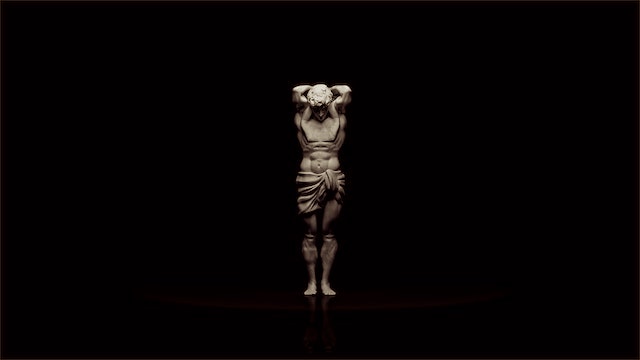We are obsessed with the ‘remarkable’ —the special and the extraordinary — which we so desperately crave. Yet, there really is nothing more unremarkable than chasing the remarkable — than unconsciously and unquestioningly chasing some idea of ‘special’ that everyone else is also chasing. Usually, this only amounts to running after various arbitrary, socially accepted status achievements in the hope of finding fulfilment. Is there anything special in this frantic, cookie cutter conformism? Isn’t it actually the most unremarkable thing one can do?
Rebels aren’t remarkable either
Fed up with the banality of conventional status, some choose to rebel against it. Yet, the way of the so-called ‘rebel’ doesn’t cut it either. By abandoning convention and being contrarian for the sake of it, they still continue to be defined by convention. The rebel’s identity only exists in opposition to whatever they are rebelling against — as such, is inseparable from it. Being contrarian is merely conformism by the back door!
The rebel is hardly likely to have found genuine fulfilment either. They have dumped conventional status achievement only to replace it with something new that they believe is more remarkable. They have just swapped one thing for another, while the obsession with chasing the remarkable still remains. At core, the rebel that aims at career ‘failure’ is no different to the career climber that is chasing ‘success’ along the ladder. Seeking validation through X has merely shifted to seeking validation through the opposite of X.
The trap of chasing the remarkable
Confucius once said that “the man who understands the Tao (The Way) in the morning, can die contentedly in the evening”. This is a nod to the fundamental reality that each moment of life, in some inexplicable sense, no matter how remarkable or unremarkable, has inherent worth. So, is there any need for chasing the remarkable in order to experience life at its fullest? Is there any need for anything more than the present moment?
Yet, a statement like Confucius’s may only raise more questions than it answers. As such, it can be helpful to ask who exactly is chasing the remarkable? This can bring us closer to the heart of the problem — the creating and maintaining of our self-identity. An identity that we come to believe we are, or should be. An identity we construct using external status benchmarks and work very hard to realise — an identity that can become all consuming without us fully realising it!
The whole question of identity is a subtle business. On the one hand, we aren’t trying to deny the individual as a unique being with unique interests. On the other hand, we want to avoid the trap of chasing after some fake, conditioned idea of whom you believe you should be, in order to prove your uniqueness. The difference between the two may not be obvious at first glance, especially if you have mistaken the conditioned idea of whom you should be for whom you actually are! We can so easily mistake the copy for the real thing.
So, how to avoid the confusion?
Chasing the remarkable and self-identity
A key difference between the two lies in how self-identity arises. We can ask if it’s inside out or outside in? Is it an identity that emerges — inside out —through engaging in life with a sense of connection to everything you do? Or, is it outside in — an identity you manufacture according to some arbitrary idea of whom you think you ought to be? Some arbitrary idea based on an unconscious patch work of conditioning accumulated from birth.
We may confuse the two types, but they are worlds apart. The crucial point here is that we cannot force or engineer identity. We must allow it to emerge, and it will be whatever it is. We cannot define or anticipate identity in advance. But, to do all this, we must first become aware of how the default tendency is to manufacture self-identity — a machine ego —from the outside in. Once we start to notice how we cling to some fake self-identity, we can then allow ourselves to let go of it, so that our true identity has space to emerge.
In a sense, the path of self-knowledge begins with the simple question: “Who am I, really?” Am I mechanically living out a ready-made script handed to me? Or, am I allowing the inherent and unfathomable creative potential within me to emerge?
When the unremarkable becomes remarkable
Perhaps, we are now in a slightly better position to give meaning to Confucius’ words. It matters less whether an act is deemed to be unremarkable or remarkable, after the fact. What truly matters is the degree of connection and engagement you feel when you are doing it. Such that if you fully experience the remarkability of a single act in a single moment, it is as if you experienced all of life.
This is the way in which the unremarkable becomes remarkable — for the distinction ceases to exist anymore. The ordinary everyday becomes extraordinary just as it is.
_____________________________________________________________________________________________



Recent Comments